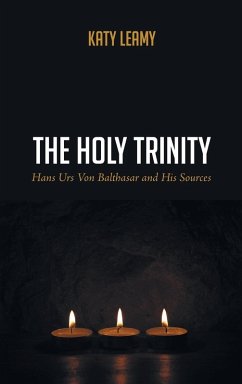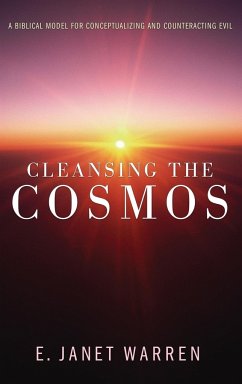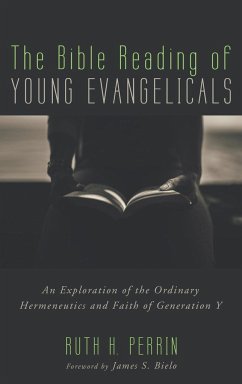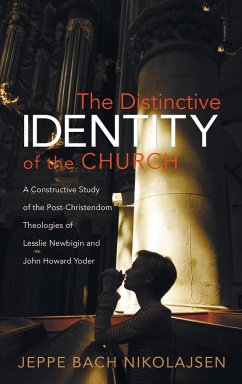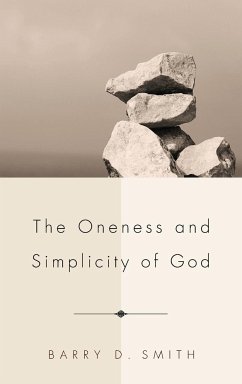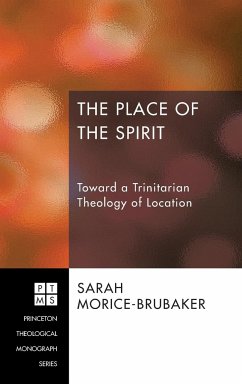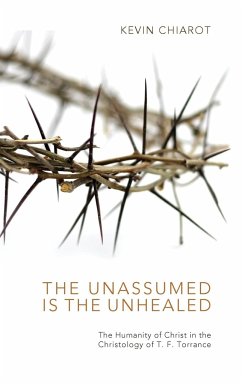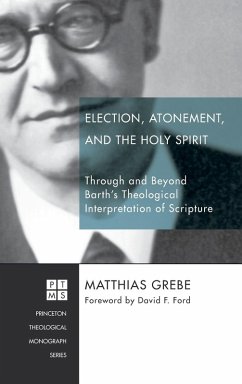
Election, Atonement, and the Holy Spirit
Versandkostenfrei!
Versandfertig in 1-2 Wochen
47,99 €
inkl. MwSt.
Weitere Ausgaben:

PAYBACK Punkte
24 °P sammeln!
This book examines the doctrines of election and atonement in Karl Barth's Church Dogmatics, taking up Barth's own challenge to his reader to surpass his argument and offer a better typological interpretation of the cultic texts. Barth's radical re-working of Calvin's doctrine of election is one of the most important developments in twentieth-century theology. Christ synthesizes for Barth a particular dialectic: the binary structure of God's Yes of election and God's No of rejection. The book's central question--how can Jesus simultaneously be both the elected and the rejected (CD II/2), actin...
This book examines the doctrines of election and atonement in Karl Barth's Church Dogmatics, taking up Barth's own challenge to his reader to surpass his argument and offer a better typological interpretation of the cultic texts. Barth's radical re-working of Calvin's doctrine of election is one of the most important developments in twentieth-century theology. Christ synthesizes for Barth a particular dialectic: the binary structure of God's Yes of election and God's No of rejection. The book's central question--how can Jesus simultaneously be both the elected and the rejected (CD II/2), acting as both the judge and the judged (CD IV/1)?--is followed by an exploration of the roles of the Holy Spirit and human freedom in God's electing and saving action. Commentators both acknowledge Barth's innovation in this area and identify problems with his approach, but few have offered what David Ford has called a correction ""from within"" Barth, using Barth's own method. Using the concept of Existenzstellvertretung, this critique of Barth's exegetical justification for the doctrines offers an alternative exegesis that not only provides this much-needed correction, but also immerses the reader in a fresh engagement with Scripture itself. ""Probing Karl Barth's magisterial revision of the traditional doctrines of election and reconciliation, Matthias Grebe offers a constructive critique of the forensic understanding of Christ's saving work. His comprehensive and carefully developed argument, coupled with an in-depth knowledge of recent debates in biblical studies, sets a high standard for future study of the 'Church Dogmatics.'"" --Matthias Gockel, Friedrich-Schiller University Jena, Jena, Germany ""This book offers a close reading of the central pillars of Barth's theology: the result, a constructive pushing of the doctrines of election and atonement in new directions. Wrestling with the biblical tradition, Grebe plays Barth at his own game and tests the exegeses that lie at the heart of Barth's dogmatic proposals. Grebe emerges as a reliable interpreter of Barth's thought and a provocative theologian in his own right."" --Ashley Cocksworth, The Queen's Foundation, Birmingham, UK ""Grebe has produced a bold and important book on a central theme for Barth studies and theology more broadly. Grebe's approach of considering Barth's theology in light of biblical interpretation is not only a sound one, but also one which reflects Barth's own concerns and sets an important trajectory for Barth studies in the future."" --Tom Greggs, University of Aberdeen, Aberdeen, Scotland Revd Dr Matthias Grebe studied theology at Tubingen, Cambridge, and Princeton. He is currently a post-doctoral researcher at the University of Bonn.




